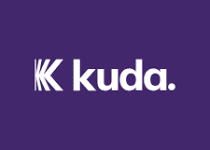Daily Bank Transfer Limit for Corporate, Current and Savings Account in Nigeria
Banking regulations can be complex and sometimes confusing for many people. In Nigeria, there are different daily transfer limits for corporate, current, and savings accounts. Knowing the specifics of each type of account and the daily limit can help you make the most of your banking experience.
In this blog post, we will explore the daily bank transfer limit for corporate, current, and savings accounts in Nigeria. We’ll discuss how much you can transfer between accounts, and offer some advice for managing your finances.
Table of Contents
What Are Transfer Limits
Transfer limits refer to the maximum amount of money that you can move from one account to another in a single day. These limits are set by banks and financial institutions to ensure the safety and security of transactions. They are designed to prevent unauthorized transfers and protect customers from potential fraud or theft.
Transfer limits vary depending on the type of account you have. For corporate accounts in Nigeria, the daily transfer limit may be higher compared to other types of accounts. This is because corporate accounts typically handle larger transactions and may require the flexibility to transfer larger sums of money on a regular basis.
Daily Transfer Limits for Corporate Accounts in Nigeria
Now let’s dive into the daily transfer limits for corporate accounts in Nigeria. Corporate accounts are designed for businesses and organizations to manage their finances and handle larger transactions. As such, these accounts often have higher daily transfer limits compared to other types of accounts.
The specific daily transfer limit for corporate accounts can vary depending on the bank or financial institution. It is important to check with your bank to know the exact limit for your account. However, it is not uncommon to see daily transfer limits ranging from hundreds of thousands to millions of naira for corporate accounts in Nigeria.
With higher transfer limits, corporate account holders have the flexibility to transfer larger sums of money on a regular basis. This is especially useful for businesses that need to make frequent payments or transfers for operational purposes. It also allows for smoother cash flow management and enables businesses to take advantage of investment opportunities or strategic financial moves.
Keep in mind that while the daily transfer limit for corporate accounts may be higher, it is still crucial to exercise caution and ensure the security of your transactions. Regularly monitoring your account activity and practicing good cybersecurity measures can help protect your business from potential fraud or unauthorized transfers.
In the next sections, we will explore the daily transfer limits for current and savings accounts in Nigeria, as well as strategies to increase your daily transfer limit and effective tips for managing your finances. Stay tuned for more valuable information!
Daily Transfer Limits for Current Accounts in Nigeria
Daily transfer limits for current accounts in Nigeria can vary depending on the bank and the type of current account you have. Typically, current accounts have lower daily transfer limits compared to corporate accounts. This is because current accounts are primarily used for day-to-day expenses and smaller transactions.
The specific daily transfer limit for current accounts in Nigeria will be determined by your bank, so it’s important to check with them to know the exact limit for your account. However, it’s not uncommon to see daily transfer limits ranging from thousands to hundreds of thousands of naira for current accounts.
While these limits may be lower, they still provide sufficient flexibility for individuals to manage their finances and make necessary transactions. Whether it’s paying bills, transferring money to family or friends, or making online purchases, current account holders can easily navigate within their daily transfer limits.
Remember, staying within these limits is important to maintain financial stability and avoid unnecessary fees or penalties. If you require higher transfer limits, you may consider upgrading your account to a corporate account, where the daily transfer limits are typically higher.
In the next section, we will explore the daily transfer limits for savings accounts in Nigeria, providing you with comprehensive information on managing your finances effectively. Stay tuned for more valuable insights!
Daily Transfer Limits for Savings Accounts in Nigeria
Savings accounts in Nigeria typically have lower daily transfer limits compared to corporate and current accounts. The main purpose of a savings account is to encourage individuals to save money and limit their spending. Therefore, banks impose lower transfer limits to discourage frequent or large transfers from these accounts.
The specific daily transfer limit for savings accounts will vary depending on the bank or financial institution. It is important to check with your bank to know the exact limit for your account. However, it is not uncommon to see daily transfer limits ranging from a few thousand to tens of thousands of naira for savings accounts in Nigeria.
While the transfer limits may be lower, they still provide individuals with the ability to manage their finances and make necessary transactions. Whether it’s saving up for a specific goal or making smaller transfers to cover expenses, savings account holders can navigate within their daily transfer limits.
Remember, staying within these limits is important to maintain your financial stability and avoid unnecessary fees or penalties. If you require higher transfer limits, you may consider upgrading your account to a corporate or current account, where the daily transfer limits are typically higher.
In the next section, we will explore strategies to increase your daily transfer limit and provide effective tips for managing your finances. Stay tuned for more valuable insights!
How to Increase Your Daily Transfer Limit
Now that you understand the daily transfer limits for corporate, current, and savings accounts in Nigeria, you may be wondering if there are ways to increase your limit. While the specific limits are determined by your bank, there are a few strategies you can try to potentially increase your daily transfer limit.
- Contact your bank: Start by reaching out to your bank and discussing your need for a higher transfer limit. Explain your reasons and provide any relevant documentation to support your request. Some banks may be willing to increase your limit based on your financial history or business needs.
- Upgrade your account: If you currently have a savings or current account, consider upgrading to a corporate account. Corporate accounts generally have higher transfer limits due to their nature of handling larger transactions. This may require meeting certain eligibility criteria set by the bank, so be sure to inquire about the requirements.
- Build a relationship with your bank: Maintain a good relationship with your bank by regularly using your account and showing responsible financial behavior. Consistent deposits, timely bill payments, and maintaining a positive account balance can all contribute to building trust with your bank, which may lead to an increase in your transfer limit.
Remember, each bank has its own policies and procedures, so it’s essential to contact your specific bank to inquire about increasing your daily transfer limit. By being proactive and exploring these strategies, you may be able to increase your limit and have greater flexibility in managing your finances.
Read Also: Lendigo Login With Phone Number, Email, Online Portal, Website
FAQS
What is the transfer limit for corporate accounts in Nigeria?
The transfer limit for corporate accounts in Nigeria can vary based on the bank and the specific type of corporate account. Generally, corporate accounts are designed for businesses, and their transfer limits might be higher compared to individual accounts. Some banks might have daily or monthly limits for outgoing transfers from corporate accounts. It’s best to contact your bank’s customer service or visit their website to find out the exact transfer limits for your corporate account.
What is the maximum amount transfer from a current account?
The maximum amount you can transfer from a current account in Nigeria depends on the bank and the specific terms of the account. Banks often have daily or monthly limits for outgoing transfers from current accounts. These limits are put in place for security and regulatory reasons. You should check with your bank to know the exact maximum amount you can transfer from your current account.
What is the daily limit for transactions in Nigeria?
The daily limit for transactions in Nigeria can vary based on the type of account you have and the bank you’re using. For individual accounts, including savings and current accounts, the daily limit might include withdrawals, transfers, and purchases. These limits are set by banks to ensure security and prevent unauthorized transactions. It’s advisable to check with your bank to know the specific daily transaction limit for your account.
What is the limit of a savings account in Nigeria?
The limit of a savings account in Nigeria refers to the maximum balance allowed to be held in the account. Banks might have different types of savings accounts with varying limits. These limits are typically in place to encourage individuals to save and to ensure the safety of funds. It’s a good idea to inquire with your bank about the specific limits associated with your savings account.
Is there a limit on the savings account amount?
Yes, there’s usually a limit on the amount that can be held in a savings account in Nigeria. This limit can vary depending on the bank and the type of savings account you have. Different types of savings accounts might have different limits. It’s important to check with your bank to understand the specific limits applicable to your savings account.
Remember that banking regulations and policies can change, so it’s recommended to reach out to your bank’s customer service or visit their official website for the most up-to-date and accurate information regarding account limits and transaction limits.
Conclusion
In conclusion, understanding the daily transfer limits for corporate, current, and savings accounts in Nigeria is crucial for effectively managing your finances. These transfer limits are set by banks and financial institutions to ensure the safety and security of transactions.
Remember, each bank may have different policies and procedures, so it’s essential to reach out to your specific bank for guidance on increasing your limit. By understanding and effectively managing your daily transfer limits, you can have greater control over your finances and make the most of your banking experience in Nigeria.




